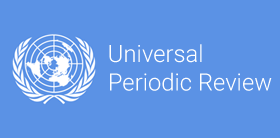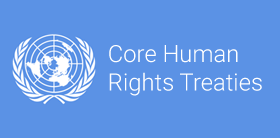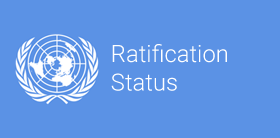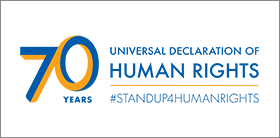24 February- Edah Maina, Jia Yang, Mohammed Al-Tarawneh and Ron McCallum are among the 12 experts elected to the Committee on the Rights of Persons with Disabilities. The Committee, which meets for the first time from 23 to 27 February in Geneva, promotes and monitors the implementation of the Convention on the Rights of Persons with Disabilities.
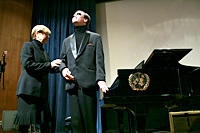
“The disabled have suffered in ignorance and silence. They are the people without any voice. Stigma and high levels of poverty have affected the voice of the parents and families who hide, chain, neglect and put in confinement their children or adults with disabilities. I want to be that voice of the voiceless and their families, to bring them justice and a better life,” says Committee expert Edah Maina from Kenya.
The inaugural session of the Committee will discuss the organization of its future work, which involves the examination of periodic reports from countries that have signed and ratified the Convention on the Rights of Persons with Disabilities. The Committee also deals with individual complaints under the Convention’s Optional Protocol.
“As you commence your work, the hope of all persons with disabilities around the world takes a huge leap forward. This beginning of the practical application of the Convention in the lives of persons with disabilities is a historic milestone in the journey towards achieving all human rights for all,” Deputy High Commissioner for Human Rights Kyung-wha Kang told the Committee when she opened its first session on 23 February.
“I am a person living with psychosocial disability…. My disability has given me a different meaning to life and encouraged me to give my time in service to humanity,” says Maina, who has been working in the field of intellectual, psychosocial and other disabilities for nine years.
“The challenges that I may face in the Committee of experts are first and foremost bringing understanding of various disabilities in various cultures of Africa. The perception of a person with disability in developed countries may significantly differ from that of developing nations,” she days.
The Convention, adopted by the General Assembly in December 2006, entered into force on 3 May 2008. It became the first new human rights treaty of the 21st Century.
High Commissioner for Human Rights Navi Pillay described the Convention as “a paradigm shift”. It confirms “persons with disabilities as full and active members of society, with rights and entitlements, rather than people dependent on good-will or charity or people to be approached from a medical perspective.”
So far “persons with disabilities have remained invisible in human rights discourse and gained few benefits from the system crafted to promote and protect the human rights of all,” she said after the election of the 12 Committee members last October.
In addition to Maina, the Committee members include Ana Peláez Narváez from Spain, Anma Ali Al Suweidi from Qatar, Cveto Ursic from Slovenia, German Xavier Torres Correa from Ecuador, György Könczei from Hungary, Jia Yang from China, Lotfi Ben Lallohom from Tunisia, María Soledad Cisternas Reyes from Chile, Mohammed Al-Tarawneh from Jordan, Monsur Ahmed Choudhuri from Bangladesh and Ronald McCallum from Australia.
There are more than half a billion persons with disabilities in the world today, or up to 10 percent of the population of each country. In developing countries, persons with disabilities are often particularly disadvantaged.
Only 2 percent of children with disabilities in the developing world receive any formal education and globally, a disproportionate number of persons with disabilities live in poverty.
Jia Yang from China lost her vision completely at the age of 29. “I became a bridge between the two worlds, the disabled and the non-disabled because I’ve been to both worlds long enough to know what each is like and fully understand why the sighted can hardly imagine how a blind person feels.”
She sees the economic and cultural differences between countries as a major challenge for the Committee.
“Special attention must be paid to ensuring access to information, education and employment, especially education for woman and children and better international co operation between developing and developed nations,” Yang says.
Mohammed Al-Tarawneh from Jordan points out that the effective implementation of the Convention hinges on the political will of governments.
“I personally think that the major challenges in implementing the Convention will be the political will of governmentsas there are many countries whichhave signed and ratified many international treaties but whichdidn’t comply or adhere to them fully,” he says.
Al-Tarawneh has been confined to a wheelchair since a car accident 32 years ago. As an engineer, he has worked to ensure physical access for disabled persons but he says, “I have come to understand that removing physical barriers needs to be coupled with an awareness raising process towards [the] rights of people with disabilities and continuous advocacyof these rights as well.”
Ron McCallum from Australia wants to use his experience as a lawyer, educator and advocate “to ensure that all human rights are inclusive of and accessible to all persons with disabilities in line with the provisions and spirit of the Convention.”
“As a disabled person, I am acutely aware of the exclusion of persons with disabilities from enjoying key human rights,” says McCallum, who has been blind all his life.
“The Committee will have to stand strong against attempts to limit the scope of the Convention.
“I believe that a major challenge will be for the Committee to develop high standards for the implementation of the Convention, while at one and the same time recognizing the differences in the economic and other capacities of states parties to implement aspects of the Convention in a given period of time,” he adds.
From now on the Committee will meet twice a year in Geneva. So far 138 countries have signed the Convention and 49 have ratified it.

